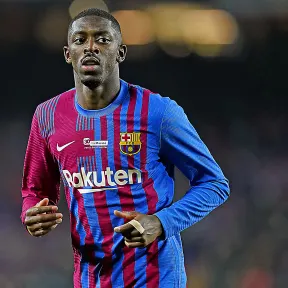Darwin Nunez to Liverpool: How Klopp can get the most from €100m signing

Liverpool confirmed the transfer of Darwin Nunez from Benfica for €100 million on Tuesday, making the Uruguay striker the second player this summer to move for such a fee.
The announcement came as no surprise. Liverpool have been favourites to land Nunez for several weeks, with FootballTransfers exclusively revealing that wages were agreed as early as a week ago. This was followed by another exclusive revealing that a formal agreement had been reached with the club on 11 June.
After Aurelien Tchouameni’s nine-figure move to Real Madrid was confirmed on 11 June, Nunez joined the Anfield club for a deal that is built in a similar structure just a couple of days later. It has made him the most expensive signing in the club’s history, ahead of Virgil van Dijk.
READ MORE: Darwin Nunez to Liverpool: Probable XI, biggest fees, Haaland duel, Man Utd alternatives
If he can be as successful as the Dutch defender, he will prove to be worth such a hefty fee. Our model suggests the Uruguay forward should be worth around €26m, so the Reds are certainly taking a risk by paying nearly four times that amount.
Unquestionably, Nunez had been incredible last season, having scored 26 goals in 28 league matches in Portugal alongside six in 10 Champions League games. The big question is whether he will turn out to be a one-season wonder or be able to sustain this level of performance going forward.
The first thing to keep in mind about Nunez is that he is not a pure striker. While he has started as a lone forward at times this season, he is at his best on the left of a front-two or while operating slightly behind a target man, which again enables him to drift out to the left. He was even used as a left winger on a couple of occasions this season.
This is because he thrives in the left half-space, as is evidenced by his heatmap for the season.
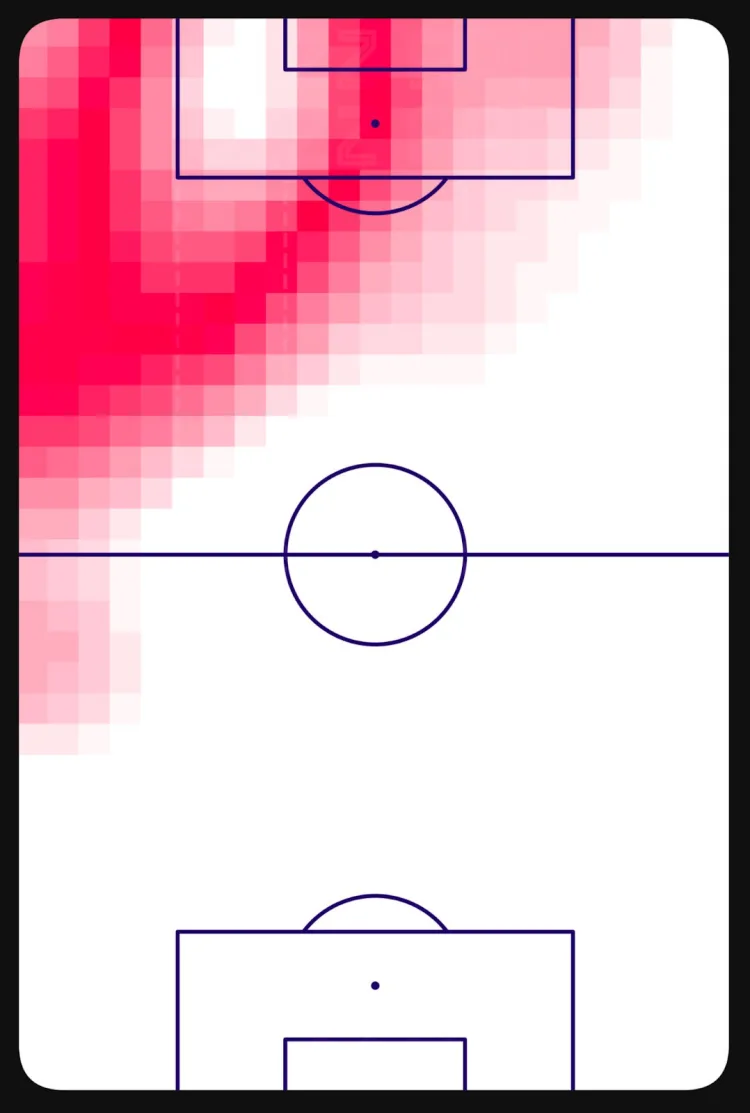
This also depicts his tendency to drift out wide and his lack of involvement in the build-up as most of his actions are clustered very high up the pitch.
His pizza chart from last season does a good job of highlighting his basic strengths and weaknesses.

The South American striker takes lots of shots and scores lots of goals, and his chance creation numbers look quite impressive, too, even though his overall link-up volume is low. He is quite strong in duels, but his defensive output is not very high.
Nunez’s shotmap also highlights why he likes to drift out to the left, as this allows him to move into the halfspace and shoot with his favoured right foot. However, his biggest shot cluster is just outside the six-yard box.
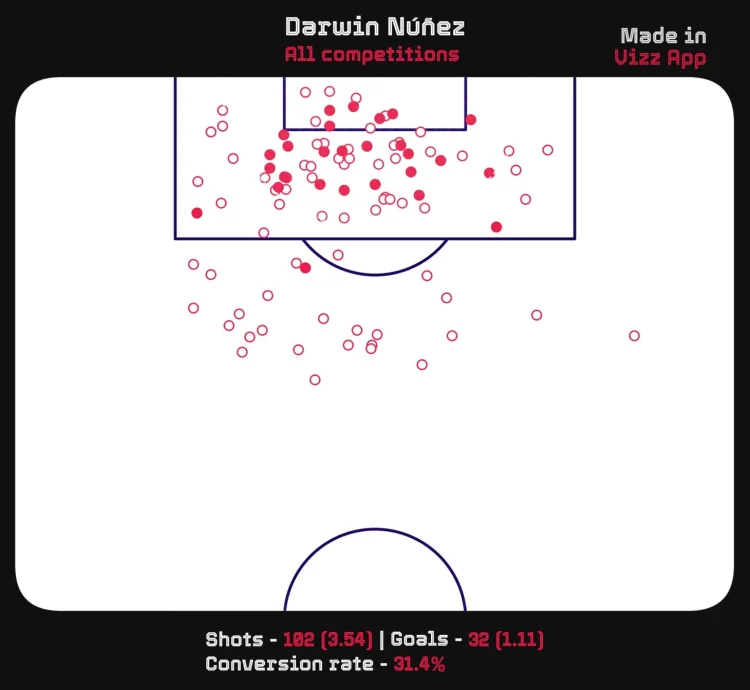
This is largely down to his exceptional movement in and around the box, which is arguably his greatest strength.
Nunez’s goal against Belenenses was a fine example of that. He started off by making a run across the opposition defender as his team-mate cut inside from the wing.
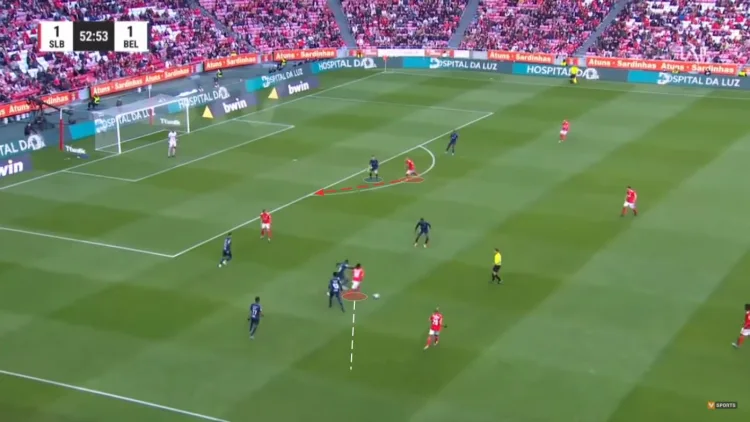
The ball was played across to the right, though, but Nunez stayed alive in the situation as he exploited the space that opened up as the defence shifted across.
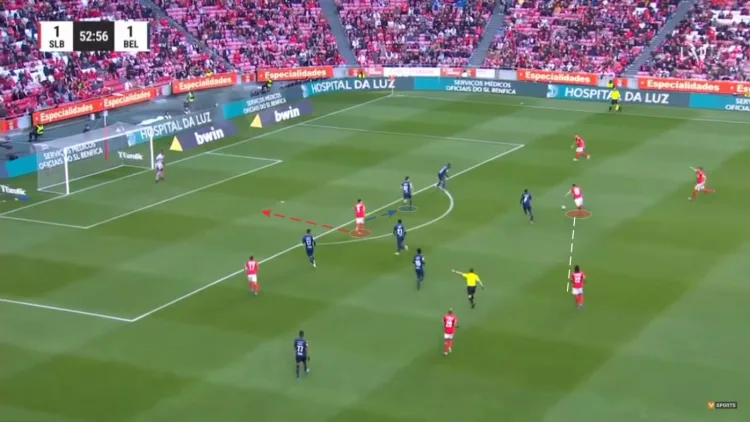
The first attempted through ball was blocked, and what followed is what separates Nunez from the average centre-forward. Most players would have been caught offside hereafter, but the Uruguayan striker quickly moved back onside and cut across one defender before making a run in the blindside of the other.
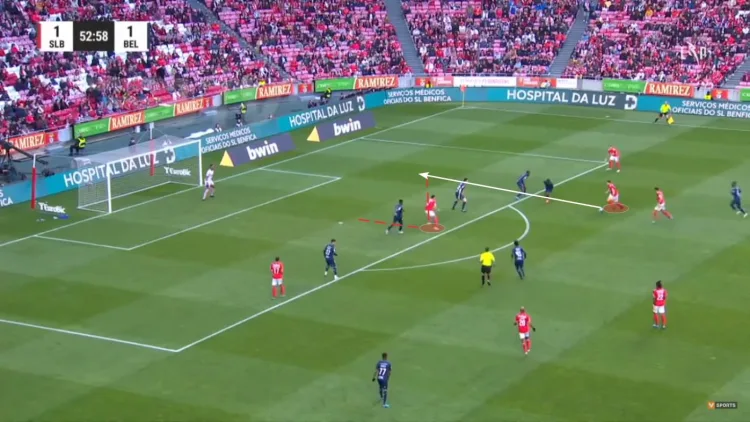
After that, he controlled the ball and applied a very good finish from a testing angle.
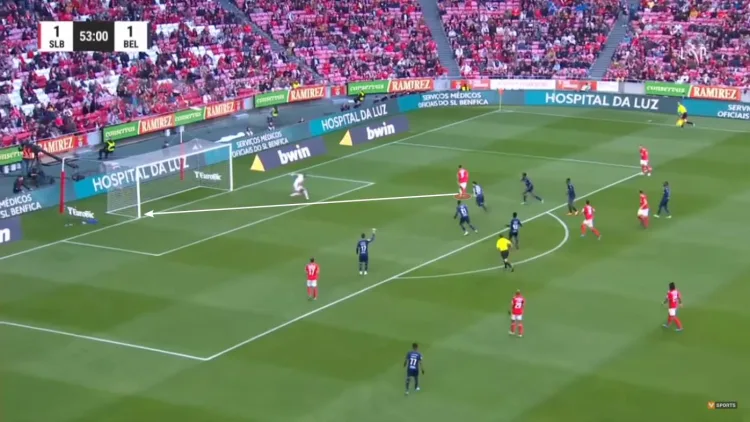
Another one of Nunez’s strengths is making runs in behind, as he can use his pace to go through on goal. This was highlighted when he scored against Sporting CP.
Once again, his clever movement was key as he made a curved run to move across one defender and get back onside as his team-mate launched a long ball forward.
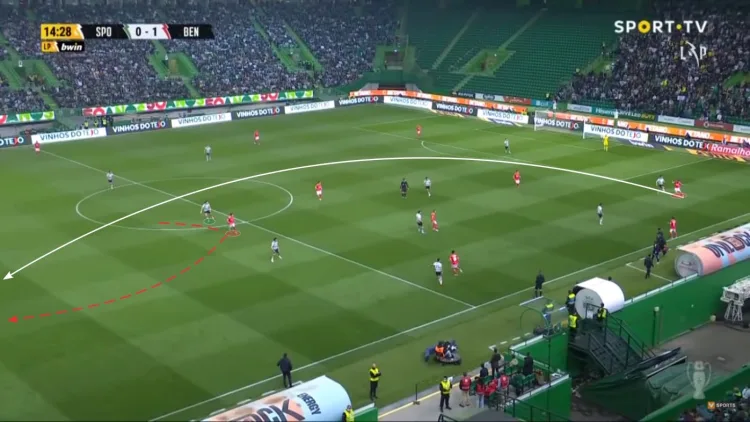
He then brought it down under pressure with his head, before chipping the onrushing keeper with a smart finish.
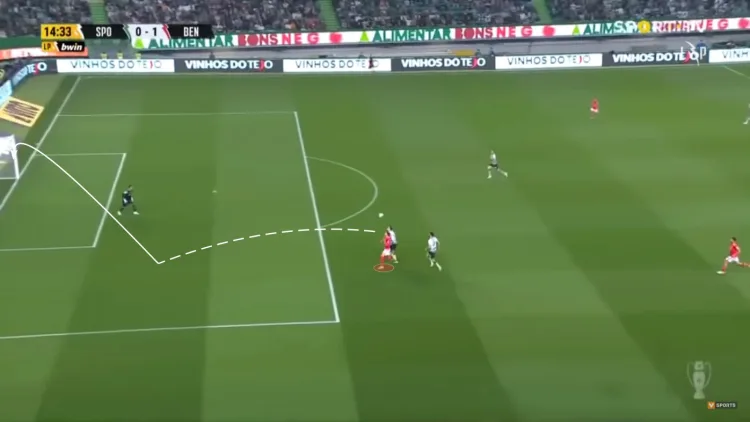
While Nunez’s finishing was above average last season as he put up a tally of 20.3 xGOT from 18.4 xG, it is clear that a return of 26 goals was a fairly notable overperformance.
Undoubtedly, it will be a big ask for him to put up similar numbers in the Premier League, but it should be said that Liverpool seem to be a very good fit for him on paper. Nunez’s movement is most useful in transition, and Liverpool are a side that like to generate such situations.
This is proven by the fact that they had an above-average median direct speed in the Premier League last season.
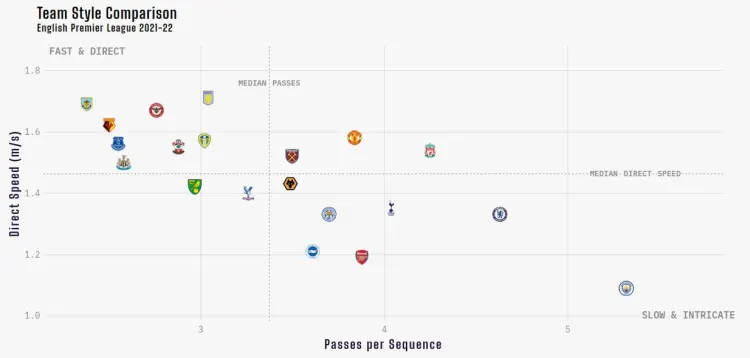
This should also help mask Nunez’s main weakness, which is his poor ball retention. Of course, he will need to work on this, but it will not be as much of an issue at a side like Liverpool as it would at a side like Manchester City.
With Sadio Mane looking set to depart Anfield, the Uruguayan forward’s arrival makes sense as he too is a left-sided attacker who can play both as a striker or left winger and relies on clever movement to get into good goal-scoring positions. The key difference, though, is that Mane is primarily a left winger, while Nunez is more of a centre-forward.
It will be interesting to see how the 22-year-old forward develops at Liverpool and which position he primarily plays in. Since Liverpool use just one striker in their 4-3-3 formation, it might make sense to use Nunez as a left winger while Diogo Jota or Roberto Firmino play through the middle. Alternatively, the Uruguayan international could work with Luis Diaz on his left.
Liverpool’s transfer success in the attacking department of late has primarily been a product of signing underperforming forward at low prices, so their decision to spend €100m on an in-demand striker on a hot streak is certainly a change in policy. If anyone knows what they are doing, though, it is their scouting department, and it does appear that Nunez is a good fit for their style of play.

